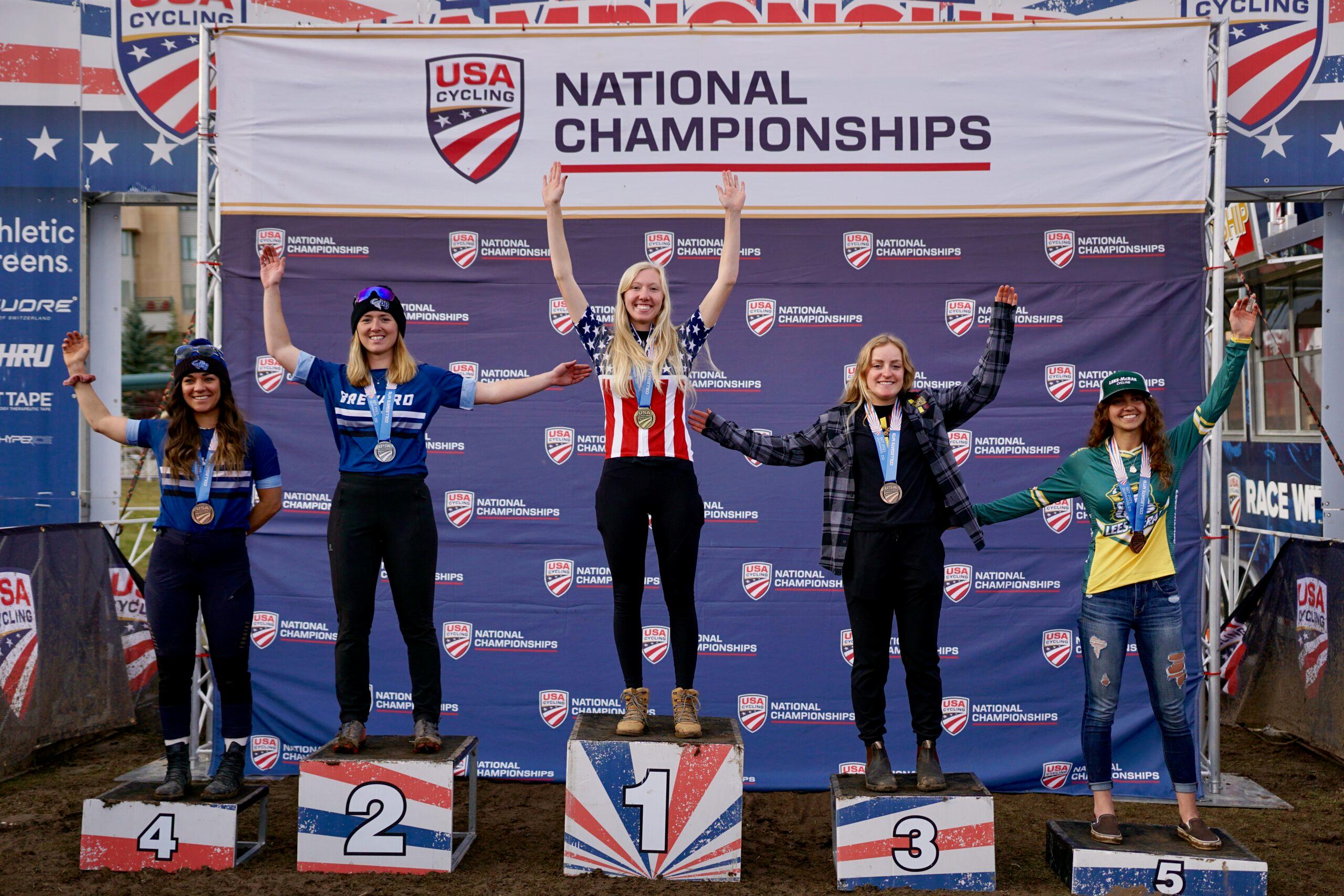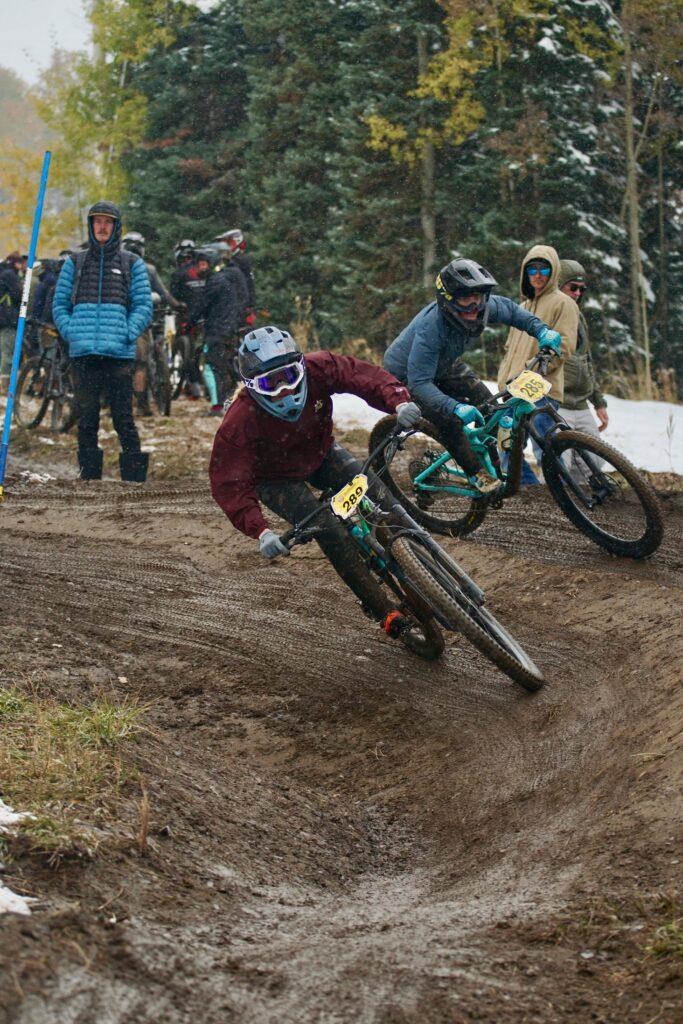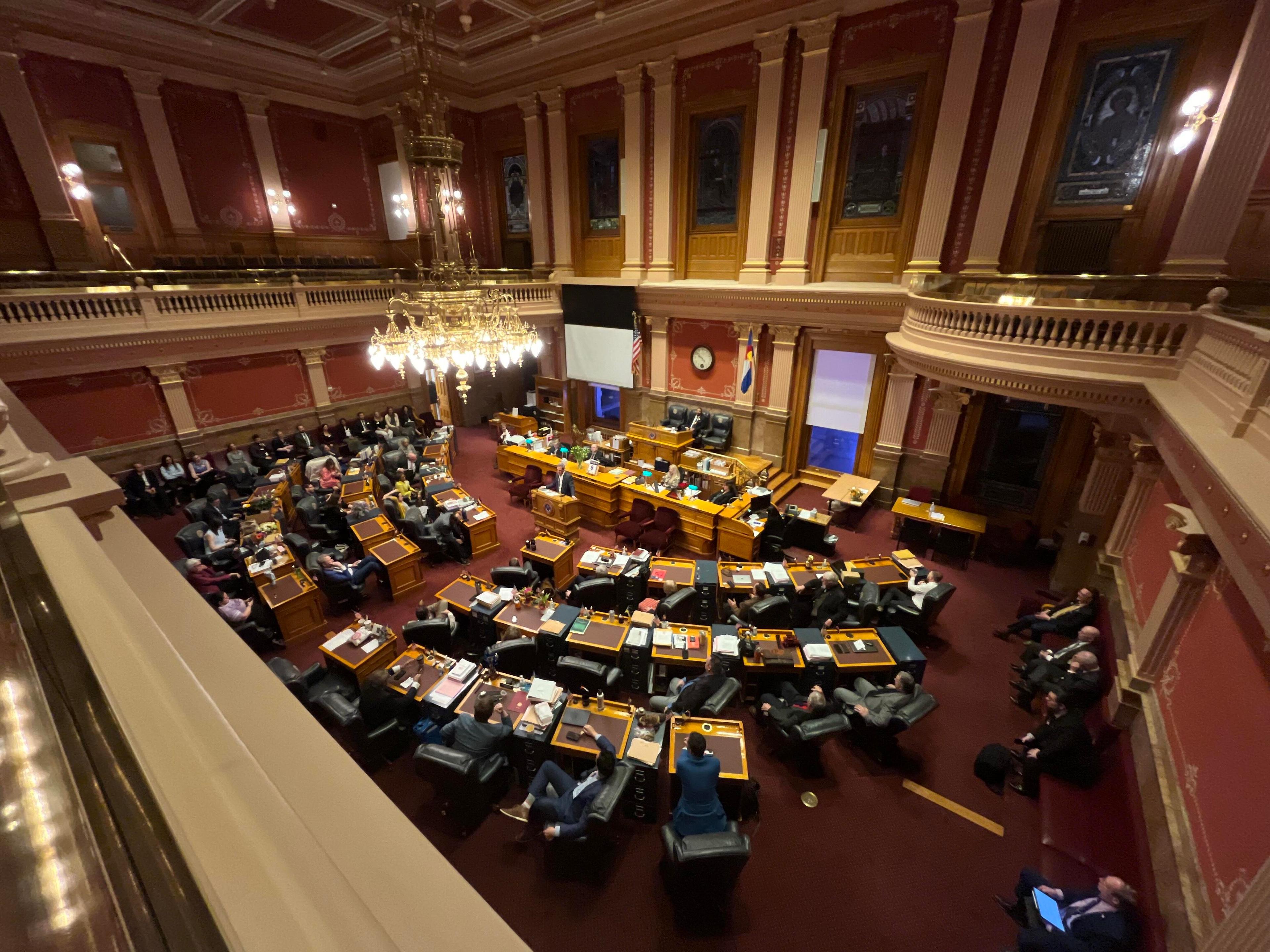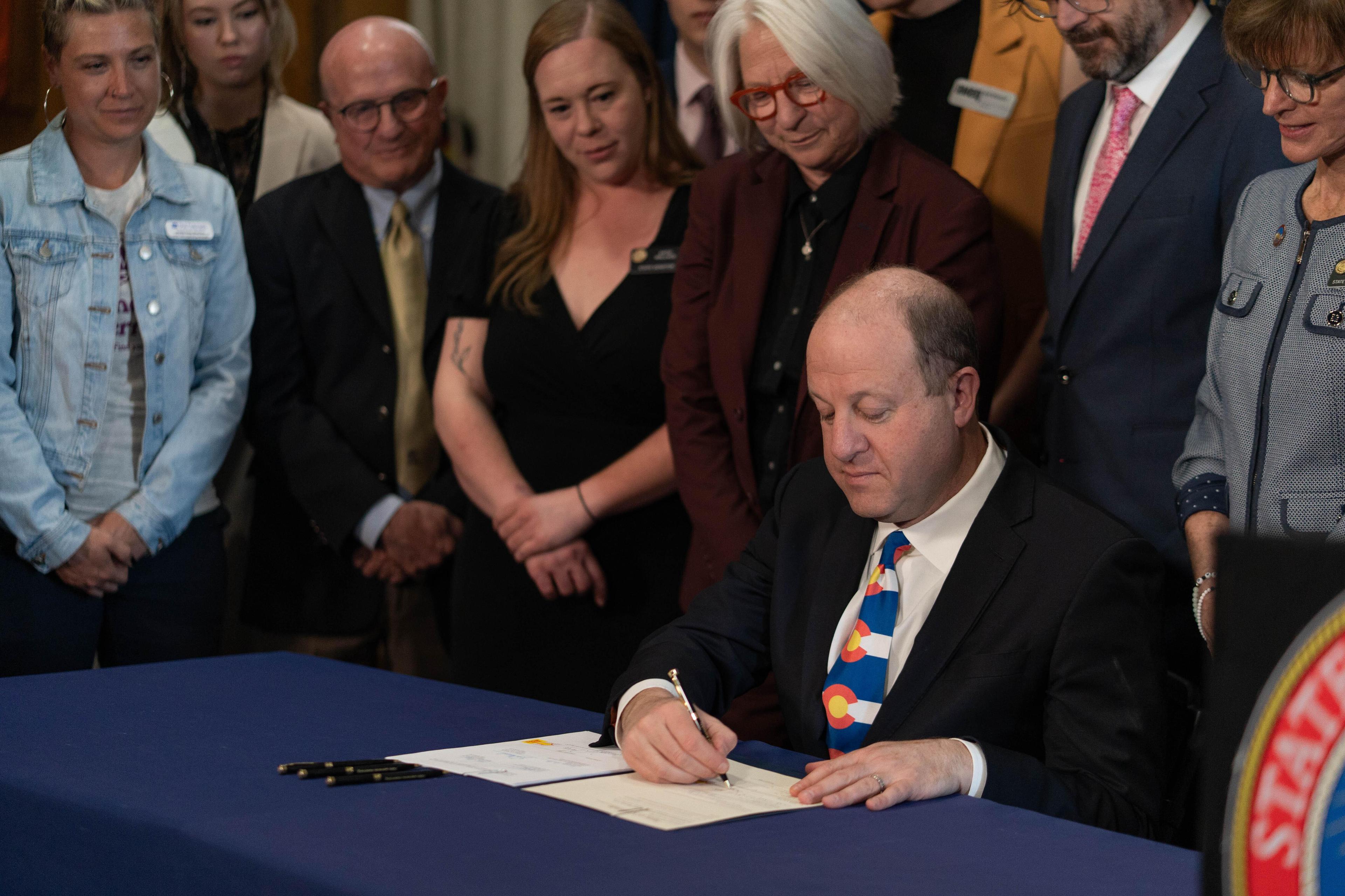
Lauren Lackman knows she’s a good mountain biker. The 20-year-old junior at Colorado Mesa University in Grand Junction has been biking since before she could walk. Which meant she was well prepared for whatever last month’s Collegiate Mountain Bike National Championships in Durango threw at her.
But snow?
“It was kind of a shock,” says Lackman. “I was like, wait, this early in winter? But I was so excited when I got there and I saw the snow.”
The reason Lackman was excited was because she had grown up in Wausau, Wisconsin, learning the skill of mountain biking through snow at an early age.
“It's different. It's really slippery for one and the more you bike on it, the muddier it gets. The biggest thing is picking tires, knowing how fast and how much power you can put out in a corner and knowing: okay, if I go a little too hard here, I'm probably gonna slip to reign it back here and then go harder when there's some grass I can grip onto.”
Through the mud and the snow, Lackman won the championship, securing the Women's Varsity Individual Omnium, and the Champion’s Jersey.
The following conversation has been edited for clarity and length.
Nathan Heffel: First off, congratulations on this national title. You are from Northern Wisconsin, which helped you prepare for the insane conditions on race day. What was it like growing up in Wisconsin?
Lauren Lackman: Growing up with the outdoors being as they are: very cold in the winter, I would do cross-training for skiing, which I think was a good strengthener. My dad had always supported me in all of my skiing, biking, academic — all of my adventures. And it really helped me go for this.

Heffel: How do you train to bicycle in snow on a mountain bike trail?
Lackman: It's different. It's really slippery, for one, and the more you bite on it, the muddier it gets. It kind of goes from an ice rink to a festival, but it's a lot of fun. The biggest thing is picking tires knowing how fast and how much power you can put out into a corner. And knowing, if I go a little too hard here, I'm probably gonna slip. So, I’ll have to reign it back here and then go harder when there's some grass that I can grip on to.
Heffel: So, it creates a really muddy mess.
Lackman: It does, yes. It's much more technical than you would assume going into it.
Heffel: Tell us about the courses themselves; are they all downhill or is it a mixture of different types of mountain biking?
Lackman: It's a mixture. Omnium, which is what I won, was four events. The first was dual slalom, which is a gravity event where you go side-by-side through brackets while racing each other for, I think, around 30 seconds. Then there was cross country, which is what I consider to be the most-known mountain biking, and it's one of my stronger suits. We did two laps — it was supposed to be three, but because of the snow, they cut it down. And then [we did] short track, which is a mini version of cross country — also endurance. Then onto downhill, which is just going downhill as fast as you can for five minutes
Heffel: And making sure you don't slip in the mud, and all that crazy stuff. These were definitely not normal conditions, right?
Lackman: No, definitely not. This is the first time I have ever done a national championship with this much snow or mud. It was a lot of fun. I have done cyclocross, which is one of my other disciplines, which is normally around December, and it's snowy and muddy. You have these tiny little skinny tires and, basically, you slide in the mud and you know you're going to fall, but you get back on, run with your bike up [and] over obstacles. So, I think that prepared me a lot for this.
Heffel: Does it make it more rewarding that you won given these conditions and how treacherous they were?
Lackman: It really does. My mom was telling me up until my last race, ‘no matter what happens, you know that you are here competing in this and you are giving it your all. And this is something that a lot of people will never experience.’ It's something that I'll remember forever.
Heffel: When you chose to come to Colorado Mesa University, you wanted to do mountain biking, right? How has it been preparing for races like these while being a full-time student majoring in mechanical engineering?
Lackman: It's rough. It's a lot of long days and a lack of sleep. But it is so rewarding knowing that I'm not just pursuing my athletic career, I'm also getting a degree at the same time. My coaches and classmates and teachers — they are so understanding of how hard it is being a student-athlete. They help me through it all so well. There are so many opportunities, especially here at CMU, to be able to get an amazing degree, have an amazing time here at school and to be able to see how far I can go in my sport.
Heffel: For all the mountain bikers listening, can you give us the top three or four trails you love in Western Colorado that they just have to try?
Lackman: Yes. It's a hard one; They're all really fun. But, I would say my top couple: I love Time Machine here at the Lunch Loops in Grand Junction, Horsethief on the Kokopelli Trail. And then, Slick Rock in Moab. Honestly, let's throw that one in there. It’s just so unique.
Heffel: I have also heard of the Palisade Plunge. It's a new one, have you tried that yet?
Lackman: I have not gotten the opportunity to try that yet. But I am very much looking forward to it. I saw a couple of YouTube videos and it looks pretty gnarly, honestly.
Heffel: Now that you have won a champions jersey, what's next?
Lackman: I would like to attempt a couple more. One of my biggest dreams is to be able to represent the U.S. at a world championship, so hopefully in my next couple of years of cycling, I get a chance to represent the U.S.








